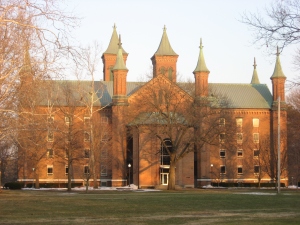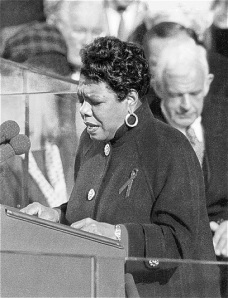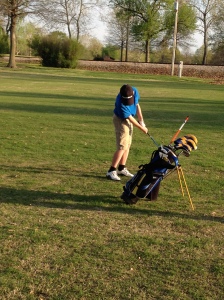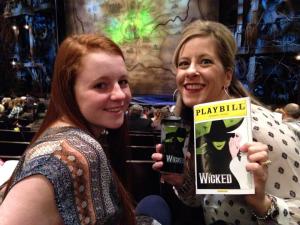
Antioch College, in Yellow Springs, OH, was the first college in the country to admit both non-whites and women with equal status to white men (Wikipedia)
In January of 1985 I embarked on my second semester of my freshman year in college. As I scheduled my classes for the upcoming spring, I determined that this semester would be different from the last semester: I resolved to earn an ‘A’ in at least one class this go-around.
Since I tested out of English Comp 101, the university allowed me to enroll directly into Comp 102, which suited me just fine because I fancied myself a budding writer looking for the tools I needed to pursue my personal goal of writing the next Great American Novel, and to do so I needed to get the boring preliminary classes out of the way as quickly as possible. Time was of the essence here, you know.
Imagine my surprise and displeasure when my PhD candidate-grad assistant-professor informed me after grading my first essay that I would not, under any circumstances, make an ‘A’ in her class.
I withdrew from her office, holding my butchered-with-red-ink, ‘C’ graded, pathetic composition at arm’s length from my body as I trudged back to my dorm, ready to cry and change my major to the much less subjective field of Computer Science (the major my dad recommended I study in the first place. Hooray for STEM-minded dads!).
Through some miraculous feat of determination (and the lack of anything better to do during the hour-and-a-half allotted to my schedule for Comp 102), I managed to continue attending her class and scraped out a ‘B+’ for my final semester grade. And, in the process, this remarkable professor taught me two things that stayed with me for the rest of my life: avoid using ‘to be’ verbs as much as possible in my writing, and – despite my personal upbringing where my family placed my brother and me on equal footing with regard to education and career choices – women continue to struggle to achieve the respect they need for their professional and personal success.
My professor focused her PhD thesis on pop culture and its effects on women in social situations. She theorized that there was a direct correlation between the prolific distribution of porn and the increase in date-rape crimes on college campuses. I participated in a focus group she hosted (for extra credit, of course – how else do you think I managed to obtain the highest grade possible in her class?) that discussed the use of pornographic images in music videos, magazine ads, and movies and how these images turned women into one-dimensional sex objects instead of living, breathing human beings capable of making their own decisions – especially in regard to what happens to their bodies. In short, due to the portrayal of men as dominant over women, pop culture reiterated the idea that boys reserved the right to treat girls as possessions instead of equal human beings capable of making their own decisions about their sexuality, career pursuits, family planning, and so on.
My participation in this focus group awakened me to the idea that not everyone looked at women as intellectually equal to men. Two years later, as I sat in my business classes populated by a disproportionate amount of male to female students, I further recognized the prevalence of sexist attitudes in Corporate America when a male professor pointed out that, at the time, only a minority of Fortune 500 companies boasted female executives (God bless him for even discussing the topic in class.) My burgeoning feminist beliefs reached full maturation when, as an assistant manager with Wal-Mart in 1989, I learned that my district manager took it upon himself (as in, without my permission) to inform the Home Office that no, I would not be interested in entering their newly designed buyer trainee program, despite the fact that they had called to personally invite me to join the program. After a brief deliberation, I decided that I would, indeed, like to relocate to the Home Office in Bentonville, AR. Unfortunately, my district manager’s assertion that I stay put caused the director of the program to withdraw his earlier invitation – a fact I didn’t learn about until two months later. Which is when I began the search for a new job.
Among some groups (most specifically, of course, intimidated men), the term “feminism” carries negative connotations. “Men haters”, “bra burners”, “radicals”, “feminazis” are just a few of the many derogatory terms used to describe those of us who believe that gender should have no bearing on a person’s ability to earn a living or pursue his or her educational interests. At times, even I have shuddered at the label, “feminism”. And then I read the actual definition of the term:
Feminism: “The doctrine which declares that social, political, and economic rights for women be the same as those for men.” – Webster’s Dictionary
This definition does not state that feminism advocates for women to become men (or stop being feminine), nor does it declare that women are superior to men. It simply states that women – as human beings – deserve the opportunity to enjoy the same rights as men. Period. And that is a doctrine that both men and women can subscribe to with a very clear conscience. Equal educational and economic opportunities for myself and my daughters. For my friends and their daughters. For women both at home and abroad. Because, how can we expect to overcome poverty, hunger, and war if only half of the population is educated and/or employed?
How about you? When did you first identify with feminism? Did you ever experience discrimination and, if so, how did you handle the situation? Were you ever encouraged to not pursue an interest or job opportunity due to your gender? If so, tell me about it in the comments section below – I love to hear your stories!





